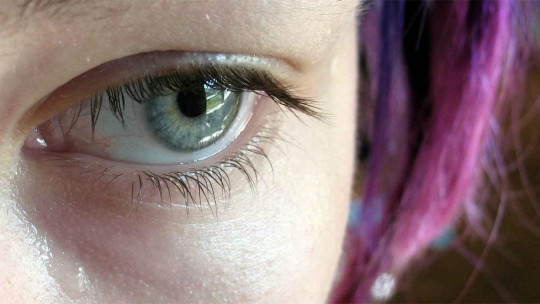
Anticipatory anxiety is an emotional experience that affects many people in different aspects of their lives. Unlike anxiety in the present moment, anticipatory anxiety leads us to imagine and fear the possible negative outcomes of future situations. In this way, we are trapped in an endless cycle of catastrophic thoughts, which creates an additional load of stress and tension before the event actually occurs. This constant state of alert and worry can undermine our confidence, weaken our ability to concentrate, and affect our personal and professional relationships. However, there are various strategies and approaches that can help us deal with it effectively, allowing us to regain control and reduce its negative impact on our well-being.
In this PsychologyFor article we will address in depth the to Anticipatory anxiety: what it is, causes, symptoms and treatment.
What is anticipatory anxiety
Anticipatory anxiety is a form of anxiety that arises as a result of worrying excessively about future events or situations. In other words, people who experience this type of anxiety have a tendency to anticipate the worst and experience significant emotional distress before the event in question occurs.
This excessive worry may be related to uncertain situations, important events or circumstances that could trigger fear or anxiety that can affect different areas of life, such as work, studies, personal relationships or daily activities. These people may find themselves trapped in a cycle of anxious thoughts that are very difficult to control and generate constant restlessness and distress.
In addition to anxious thoughts, anticipatory anxiety can manifest itself through physical and emotional symptoms which may intensify as the feared event or situation approaches. In many cases, these concerns are disproportionate to the current situation. However, for the person experiencing them they are overwhelming.
Diagnostic criteria for anticipatory anxiety
According to the DSM-V(1), this clinical condition can be part of panic attacks defined by very specific qualities. The main diagnostic criteria to detect anticipatory anxiety disorder are:
- Intense discomfort
- Palpitations
- Incrise of cardiac frecuency
- Sweating
- Tremors
- Difficulty breathing
- fear of death
- Dizziness and instability
- Shaking chills

Causes of anticipatory anxiety
The causes of anticipatory anxiety can be diverse, since each person may have different triggers. Below are some possible causes that may contribute to the development of anticipatory anxiety:
- Traumatic experiences: People who have experienced past trauma, such as events of violence, abuse, or significant loss, may be at higher risk of developing anticipatory anxiety. These experiences can leave a deep emotional imprint and generate constant worry about the possibility of similar events occurring in the future.
- Genetic and biological factors: There is evidence that anticipatory anxiety may have a genetic basis. Therefore, if you have a family history of anxiety disorders, you may be more predisposed to experiencing it. Additionally, chemical imbalances in the brain, such as overactivity of certain neurotransmitters, can contribute to the development of anticipatory anxiety.
- Learning and conditioning: Learning experiences may also play a role in the development of anticipatory anxiety. If you have had previous experiences in which your fears have materialized or you have experienced high levels of anxiety in specific situations, your mind may automatically associate similar future events with fear and worry.
- External factors: Environmental factors such as high levels of stress, intense work or academic demands, as well as family or financial problems can trigger or exacerbate anticipatory anxiety. These types of situations can create a sense of uncertainty and generate constant worry about possible negative outcomes.
- Negative thinking patterns: Negative beliefs about oneself, others, and the world can contribute to anticipatory anxiety. In this sense, catastrophic thinking patterns, constant rumination and the tendency to expect the worst can maintain and increase levels of anticipatory anxiety.
Symptoms of anticipatory anxiety
Anxiety symptoms involve a combination of physical, emotional and cognitive manifestations. Below are some common symptoms associated with anticipatory anxiety:
- Constant worry: People with anticipatory anxiety experience persistent and excessive worry about future events. These concerns are often disproportionate to the actual situation and can be difficult to control.
- Physical symptoms: Anticipatory anxiety can manifest in the body through physical symptoms such as muscle tension, tremors, palpitations, sweating, shortness of breath, stomach discomfort, dizziness, and headaches.
- Restlessness and agitation: People may feel restless and unable to calm down due to anticipatory anxiety. They may experience feelings of nervousness, have difficulty relaxing, and feel constantly on alert.
- Difficult to focus: Anticipatory anxiety can affect the ability to concentrate and pay attention. People may have trouble focusing on tasks or activities due to constant worry and the intrusion of anxious thoughts.
- Irritability: Anticipatory anxiety can make the person more irritable and have a lower tolerance for frustration. Small things can generate exaggerated emotional responses.
- Sleeping problems: Many people with anticipatory anxiety experience difficulty falling or staying asleep. They may have insomnia, wake up frequently during the night, or have nightmares related to their worries.
- Hypervigilance: People with anticipatory anxiety may be constantly looking for signs of danger or threat. This can lead to hypervigilance, where they feel alert and tense even in seemingly safe situations.
Treatment of anticipatory anxiety
The treatment of anxiety different ways of coping. Here are some common treatment options:
Cognitive behavioral therapy (CBT)
CBT is a form of psychological therapy widely used to treat anticipatory anxiety. This type of therapy focuses on Identify and change negative thought patterns and maladaptive behaviors associated with anxiety.
Through techniques such as cognitive restructuring and gradual exposure to feared situations, CBT can help reduce excessive worry and learn effective coping strategies. In this article you will find more information about Cognitive-Behavioral Therapy: what it is and what techniques it uses.
Exposure therapy
Exposure therapy is a key component of CBT and is used specifically to address anticipatory fears and worries. Consists in gradually confront feared situations or future events in a controlled and safe manner to help desensitize fear and reduce associated anxiety.
Relaxation and stress management techniques
Learning relaxation techniques, such as deep breathing, meditation, and progressive muscle relaxation, can help reduce physical symptoms of anticipatory anxiety and promote greater emotional well-being.
On the other hand, controlling stress through effective planning and organization can also help reduce anxiety levels.
Pharmacological support
In some cases, it may be considered use of medications for the treatment of anticipatory anxiety. The antidepressants and anxiolytics They may be prescribed by a mental health professional to help reduce anxiety symptoms.
It is important to work closely with a doctor to evaluate the potential benefits and risks of medications.
Complementary therapies
Some people find benefit in complementary therapies, such as acupuncture, massage therapy or yoga practice. These techniques can help reduce stress and promote relaxation, complementing other forms of treatment.
In this article you will find more information about the Benefits of practicing yoga daily.

This article is merely informative, at PsychologyFor we do not have the power to make a diagnosis or recommend a treatment. We invite you to go to a psychologist to treat your particular case.
If you want to read more articles similar to Anticipatory anxiety: what it is, causes, symptoms and treatment we recommend that you enter our Clinical Psychology category.
- American Psychiatric Association. (2013). Diagnostic and Statistical Manual of mental disorders (5th ed.). Arlington: Panamericana Medical Publishing House.
Bibliography
- Reyes-Ticas, JA (2005). Anxiety disorders: practical guide for diagnosis and treatment.
- Navas Orozco, W., Vargas Baldares, MJ (2012). Anxiety disorders: Targeted review for primary care. Medical Journal of Costa Rica and Central America, 604 (2), 497-507.
- Tortella-Feliu, M. (2014). Anxiety disorders in the DSM-V. Ibero-American Journal of Psychosomatics, 110 (1), 62-69.








